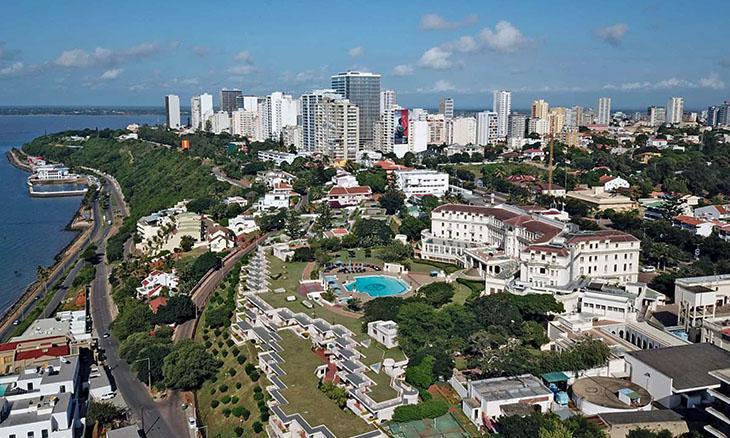Africa-Press – Mozambique. Companies in Mozambique saw a deterioration in operating conditions for the second month running in June, as they curtailed their output levels for the first time since January in response to waning sales. Purchases meanwhile fell for the second successive month, helping to keep a lid on overall price pressures. Despite the downturn, firms showed increased confidence in the year-ahead outlook, which improved to its best since May 2024.
The headline figure derived from the survey is the Purchasing Managers’ Index (PMI®). Readings above 50.0 signal an improvement in business conditions on the previous month, while readings below 50.0 show a deterioration.
At 49.1 in June, down from 49.6 in May, the index signalled a further decline in the health of the private sector economy.
The pace of contraction was mild but still slightly worse than in the previous month. Four out of the five sub-indices used to calculate the PMI were consistent with the deterioration in operating conditions, including renewed falls in business activity and new order inflows.
Business activity dropped for the first time in five months in June, which surveyed companies largely attributed to a weakening of sales. Indeed, total new business also decreased for the first time in five months. In both cases, however, rates of decline were only mild.
A reduction in new orders and lower output requirements led to a sustained decrease in purchasing activity at the end of the second quarter. The pace of contraction was solid and the fastest observed so far in 2025. Consequently, inventories declined for the second straight month.
In contrast, Mozambican firms reported a fresh increase in their staffing numbers in the latest survey period, as some panellists cited rising demand for labour capacity. The upturn was consistent with a renewed rise in the volume of backlogged work, which firms partly linked to payment delays from customers.
Generally, Mozambican companies reported that suppliers were willing and able to deliver items more quickly, although there was some disruption due to the short supply of fuel and raw materials. Whilst delivery times improved in June, they did so at the softest pace in three months.
On prices, the latest survey data indicated another month of subdued cost pressures. Input prices rose marginally in June due to a renewed, albeit mild uptick in purchasing costs, whereas staff wages decreased for the first time since March. Manufacturing and services were the only categories to see total costs rise since the previous survey period.
Output charges were increased for the second month running in June. Although slight overall, the rate of inflation was the fastest seen since September last year.
Lastly, Mozambican firms expressed greater positivity when assessing their prospects for business activity over the next 12 months. Moreover, expectations were the strongest seen in just over a year. According to anecdotal reports, new clients, business development and recruitment plans were projected to be among the key drivers of increased output.
Comment
Fáusio Mussá, Chief Economist – Mozambique at Standard Bank commented:
“The Standard Bank Mozambique PMI slipped to 49.1 (seasonally adjusted) in June, from 49.6 in May, and has now come in below the 50pt benchmark in five of the last eight months. In June, there were month-on-month (m/m) contractions in output, new orders, and purchases. However, supplier delivery times and employment sub-indices improved.
“PMI outcomes below 50pt mean a month-on-month contraction in private sector economy. The June PMI is consistent with ongoing fiscal pressures and foreign exchange (FX) market supply-demand imbalances subduing aggregate demand.
“Indeed, April data shows the banking sector loan-to-deposit ratio at an all-time low of 41% in local currency, and 28.1% in foreign currency, implying still tight financing conditions, as well as subdued investment, which has seen demand for bank loans plummeting.
“Nevertheless, business sentiment has improved. The PMI future business expectations sub-index rose to a 13-month high in June. Notably, respondents likely factor in progress on liquified natural gas projects (LNG), which should boost output.
“Despite the crisis in the Middle East bringing upside risks for oil prices, we cut our 2025 year-end inflation forecast by 2 percentage points, to 4.1% y/y, from 6.1% y/y.
“Even though we retain our 2025 GDP growth forecast at 3% y/y, Q1:25 GDP data, from a demand perspective, now implies consumer demand was much weaker than initially anticipated. The Banco de Moçambique may therefore continue with interest rate cuts.”
For More News And Analysis About Mozambique Follow Africa-Press






